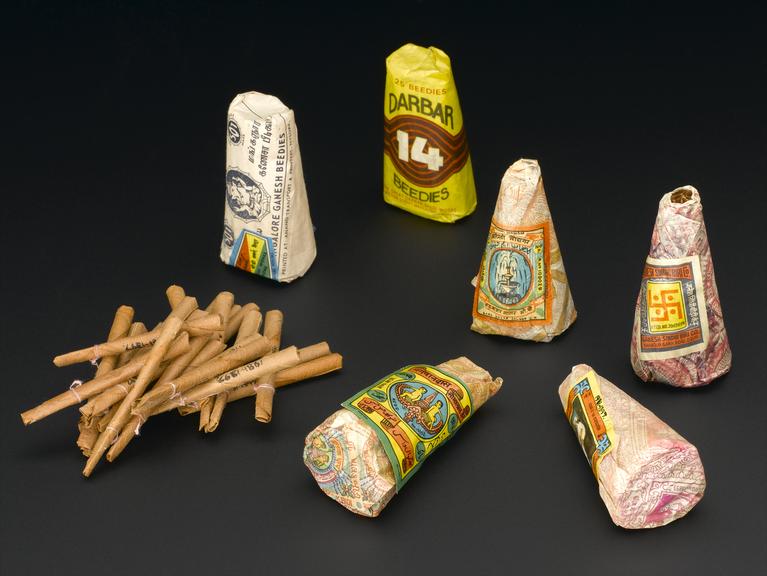I grew up in Calcutta watching everyone from my father to the cobbler to the Chief Minister smoke, and how. The sight of greying old men, corporate white-collars and hair-gelled high-schoolers waiting for the bus, with cigarettes in hand (Silk Cut, Classic Milds and Total Switch respectively), standing next to each other, wasn’t particularly unusual. Boy oh boy does the city smoke! One wake-up cigarette, one or more with tea, one afterwards to ‘build pressure’, one if your boss just ruined your weekend plans, a pre-lunch-break counter with colleague or batch mate always shadily behind the university canteen or office terrace, to catch up on the day’s gossip, another after the sumptuous lunch, in the evening at the tea stall of course, and if you meet an old acquaintance on your way back home then you never say no to another cup of tea and a smoke.
The romance of smoking is anything but fading in Monsieur Lappiere’s City of Joy. It’s so normal, one doesn’t realise until they step out of the puddle. I have often found myself being stared at. Or being the only one on an entire crossing or street in other metropolitan cities in India. Which is why, I was most surprised when all the way across the country at the other end of the border, I took a liking to the beedis, in Udaipur. 525 was my new brand of smokes. 25 bucks for a bundle of 20.
See I never had anything against beedis. It’s just that every time I’ve tried it, I’ve not liked the taste. And I have tried a fair range of beedis, a number of times. Why would I mind switching to a drastically cheaper product that’s handmade and hyper-local. Honestly, the modest pricing amazes me. The reality of that is however much more grim and not quantifiable perhaps.
I’m not here to defend smoking beedis in any way. Its effects on the users’ and passive smokers’ health and those of its makers is very real. I’m writing this to share my experiences about how easy it made it to strike a conversation with people outside my socio-economic class. After all, beedis are still the most popular smoking tobacco product in India with a current market share of 85%. Before you read this, please make sure you have gone through the links. So that you don’t hold either me or my fellowship’s intent of publishing it as an endorsement. Far from it.

Another City, Another Surprise
In Udaipur, I remember sitting at the passenger seat of an auto and pulling out one from my bundle of 525. The auto driver peered, raised a brow, looked at me and asked for one himself. I gladly obliged and we got talking about tourists and the monsoon. Honestly I think I was more surprised than he was!
The cigarette smoker in me would never have dared to ask anyone for a smoke without having first calculated the probabilities of social credit or how to pay back the price of the cigarette. On the contrary, to the average beedi smoker it doesn’t matter. It’s quicker to pass a beedi than to calculate its unit price. I wonder if that makes people more generous with it.
But I had just found a new way to break ice with strangers. On that trip I went on to voluntarily offer more beedis to auto drivers. They rewarded me with snippets and stories about their lives (depending on the duration of the ride), locally lauded places to eat and visit, political leanings, local news and negotiate fair ride fares for myself.
That’s not all. The generosity I had been extending to people soon began to come back to me out of proportion. I had just got off the train at Vadodara and hopped into an auto. When I asked the driver for a beedi, he laughed at me and handed me the entire packet. Perplexed, when I tried to return it to him after taking one, he said I was new to the city, and it was Vadodara’s favourite brand of beedis. I smiled at my warm welcome to the city and carefully kept the cover with me. On my last night in the city, another auto driver, aware that I was visiting from elsewhere, surprised to see me smoking that brand of beedis, dropped me off at his regular dinner spot for a modestly priced meal.
Hyperlocal
Here in Kutch it’s been no different. Except that these one-off conversations over beedis with strangers have given way to unusual friendships. Siddiqi Kaka, our neighbourhood carpenter, comes to fix things at our house frequently. We share a beedi to catch up on each other’s daily lives every time we meet. I like to believe that it is because of our initial beedi bonding, that I’ve had the pleasure of a long adda with him once about life before partition, the earthquake and the rise in communal tensions he has seen over his life in Bhuj. He even helped me put up a monthly planner at my workplace!
My barber in Bhuj, Prayas Kaka, is an old man of a few measured words. As usual, he too was taken aback, when right after getting off a call in which I was rattling off English, I asked him for a beedi. Now it has become a custom for us to smoke a beedi together first, before he begins to cut my hair. I’ve learnt that at the age of 80 something, he lives all by himself in the same shop that doubles up as his bedroom at night. I asked him once how he manages to live alone without any company at that age. He looked at the ceiling in deep thought as if to recall something and replied, “Never eat at another’s house, never sleep (have sex) at another’s house”. I still chuckle in amusement at the old man’s unfiltered spartan advice.
The precise reason why we smoking or asking for a beedi startles people, was perhaps best articulated by the owner of a tiny food joint I frequent in Bhuj. When I asked for one, he looked back at me and asked, “Aap beedi peete ho?”. I said yes and asked why he was asking. He remarked, “Aap jaise bade aadmi hum jaise logon ke jaise beedi kaha peete hai?”
This is exactly what it is for me I believe. Although I had primarily switched to beedis to save some money while pampering my smoke fixation, it actualised in a way I hadn’t predicted. Looking and sounding the way I do (as a city-bred, English-speaking young man), I often find myself out of place on the streets of my own country. The class divide is too obvious and people hesitate to interact as an equal with me. Maybe they even idolise me in some sense. So just the mere act of asking for a beedi, helps me break that glass wall, at least momentarily, and acquaint myself with the average smoker on the street.
The most curious thing that I find about beedis is its hyperlocal character. You see every unit of a cigarette mass produced by a company is exactly the same no matter where in the country you buy it.
A Marlboro cigarette looks exactly the same whether one buys it in Delhi, Guwahati, Mumbai or Hyderabad. Not just that, the filter is the same and the tobacco tastes exactly the same too. There is a huge amount of money, technology and effort that goes behind the product to ensure this uniformity. Every brand has its own special grade tobacco that makes every cigarette taste exactly the same. The packaging is no exception. Naturally production too needs to be centralised to collate all these individual parts into one homogenous consistent brand. One must not be able to differentiate one box from the other. In the hypothetical situation that does happen, the consumer suspects fraud. This is true for most mass produced products of any brand.
But beedis are made from tobacco that grows locally in every place, different even within the same state. Hundred different people then hand roll it and bundle it into packs. There are about 300 registered brands of beedi in India and several thousands more small-scale manufacturers cum contractors who account for the bulk of the beedi production in India. The interesting bit for me is how consumers often recognise and differentiate beedis by the colour of the thread tied around them. You will hear buyers ask shopkeepers for laal, hara or kala dhage ka beedi. This is because small scale manufacturers usually don’t have printed packaging, but transparent plastic packets with nothing printed on them or open bundles tied with thread.
Also read: Thinking About Labour And Leisure With Bihar’s Beedi Makers

I had begun writing this blog to share my experiences of building rapport with people. But in the process I’ve learnt more about its health hazards, the economics of its taxation, poor wages and exploitative conditions of the women and children who make it. This blog is in no way intended to encourage others to smoke beedis or support those who do. Maybe I should stop smoking beedis too…




0 Comments